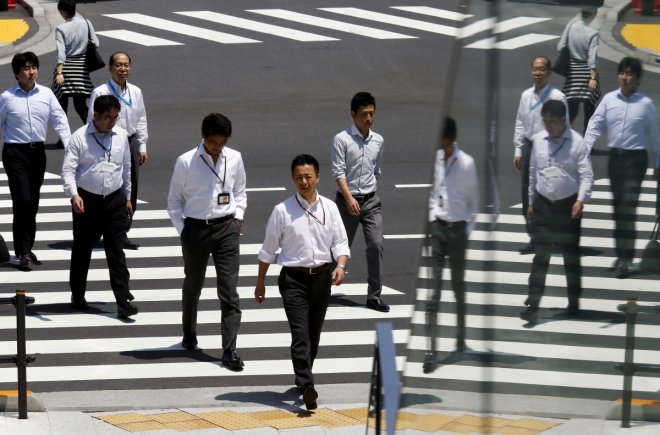
NHK, the National broadcasting organization in Japan has revealed that the death of one of its reporters, Miwa Sado, in 2013 was due to overwork. The labour officials have concluded the death as a case of Karoshi or "Death from overwork" in Japanese.
As per reports, Sado logged 159 overtime hours in a span of one month before her death due to heart failure in July 2013. The Guardian reports that Sado took just two days' off in a month prior to her death. The overtime hours worked by Sado in a month is nearly double when compared to the standard working hours of people in the US; the full-time work hours of Americans in a month is 160, four forty-hour work week.
The unexpected death of a hardworking journalist
Sado worked as the NHK reporter who was in charge of covering the Tokyo Metropolitan Government. From June - July 2013, Sado extensively covered Tokyo Metropolitan Assembly election and the House of Councilors election. She took her last breath just three days after the Upper House Election.
Masahiko Yamauchi, a senior official at the NHK's News Department told that the case of Sado is not the victim's personal matter, but a problem the whole organization is facing, including the prevailing labour system, and the way in which elections are getting covered.
"Even today, four years after, we cannot accept our daughter's death as a reality. We hope that the sorrow of the bereaved family will never be wasted," said Sado's parents, reports Japan Times.
The necessity of revamping work-related laws
Sado's death is not the first Karoshi death in Japan. In 2015, a young woman named Matsuri Takahashi committed suicide in an alleged Karoshi incident. The tweets of Takahashi, hours before her death clearly indicated that she faced immense work related stress, and was compelled to work overtime for more than 100 hours in a month.
"I want to die. I'm physically and mentally shattered," posted Takahashi in her Twitter handle before death.
The death of Takahashi acted as an eye opener for the Japanese Government, and Prime Minister Shinzo Abe launched a "work style reform" campaign to ensure work-life balance among Japanese workers.
Even though the response to the campaign was mixed, some private firms followed some creative measures to elevate the morale of their employees. Many companies are now insisting their employees take at least five offs in every six months.
Health issues are quite common among people who work overtime continuously. A recent study found that more than 20 percent of workers who took part in a survey of 10000 people revealed that they used to work at least 80 hours of overtime in a month. Half of the people who took part in the research told that they do not take paid vacations.
Working for unending hours will pull the workers to the clutches of lifestyle diseases including, cardiovascular disorders, anxiety, depression, and stroke. The labour agencies in Japan should know that work becomes more productive when an employee gets enough time to manage his personal and professional life.
Due to the mounting pressure from various corners, Japanese Government formulated a law in 2014 that called for better work atmosphere, but it did not force companies to act as per the law.









